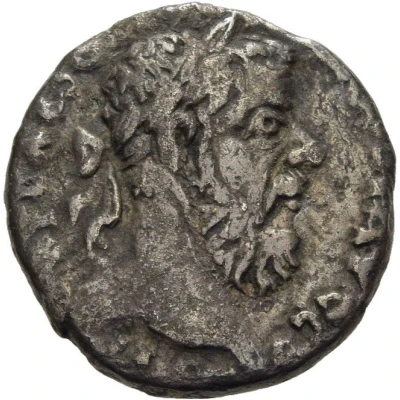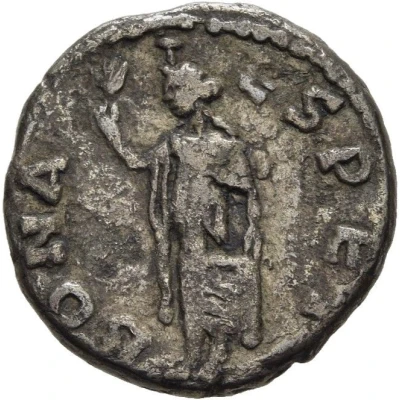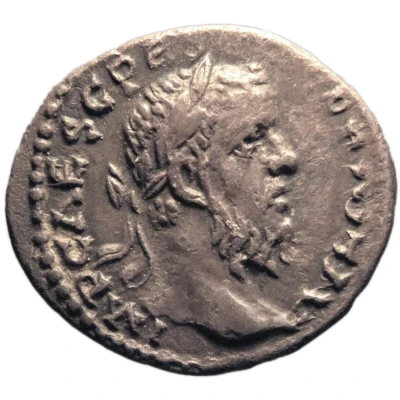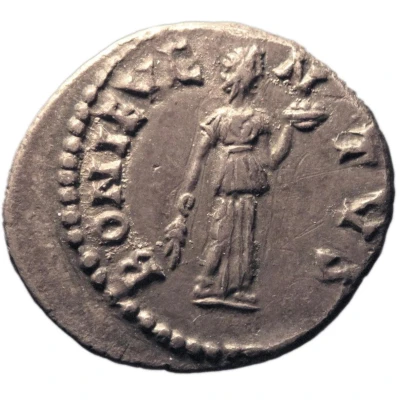Denarius - Pescennius Niger BONAE SPEI; Spes
| Silver | - | - |
| Issuer | Usurpations of Syria (Roman Imperial usurpations) |
|---|---|
| Ruling authority | Pescennius Niger (193-194) |
| Type | Standard circulation coin |
| Years | 193-194 |
| Value | Denarius (1) |
| Currency | Denarius, Reform of Augustus (27 BC – AD 215) |
| Composition | Silver |
| Shape | Round (irregular) |
| Technique | Hammered |
| Demonetized | Yes |
| Updated | 2024-10-10 |
| Numista | N#271214 |
|---|---|
| Rarity index | 100% |
Reverse
Spes, draped, advancing left, holding up flower in right hand and raising skirt with left hand.
Lettering: BONAE SPEI
Translation:
Bonae Spei.
To good hope.
Comment
Source:Online Coins of the Roman Empire (OCRE)
Interesting fact
The Denarius coin featuring Pescennius Niger (BONAE SPEI; Spes) was minted during a time of political turmoil in the Roman Empire, specifically during the Usurpations of Syria. This period saw several rival claimants to the Roman throne emerge, including Pescennius Niger, who was one of the most prominent usurpers. Despite his attempts to overthrow the legitimate emperor, Septimius Severus, Niger's rebellion ultimately failed, and he was killed in 194 AD. The coin itself is made of silver and features an image of Niger on one side, with the goddess Spes (Spes) on the other. The inscription "BONAE SPEI" translates to "Good Hope," which was a common motto used by Roman emperors to express their desire for a prosperous and peaceful reign. Overall, this coin is an interesting artifact from a tumultuous period in Roman history and provides a glimpse into the political and social upheaval that characterized the late 2nd century AD.



